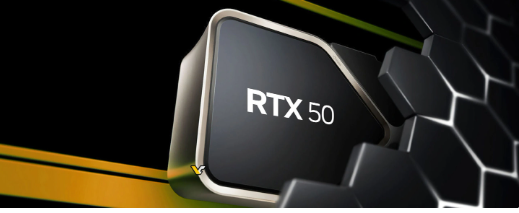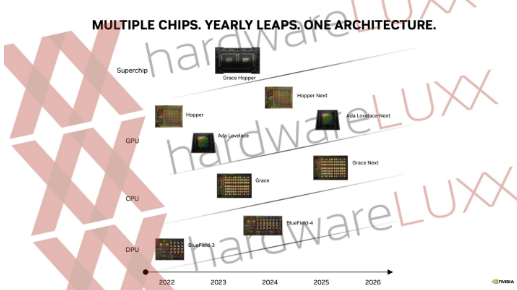
According to news on June 28, Nvidia recently revealed its detailed plans for future chips and architecture in a briefing, which attracted widespread attention. According to the roadmap provided by Nvidia, the company will continue its tradition of replacing architecture every approximately 24 to 48 months. Currently, NVIDIA’s RTX The 40 series graphics cards use an architecture called "Ada Lovelace", and the last architecture change was in October 2022, so the next generation architecture is expected to be updated between 2024 and 2025.

According to the newly released roadmap, NVIDIA plans to launch the next-generation accelerator card architecture "Blackwell" in the first half of 2024, code-named "Hopper" Next". It is reported that the first accelerator card H100 based on the Hopper architecture has been well received by users, so the successor "Hopper Next" is highly anticipated.
In addition, NVIDIA also plans to launch the next generation of games in 2025 Architecture "Ada Lovelace Next", expected to be applied to RTX 50 series graphics card. According to reports from foreign media videocard, Nvidia also plans to release more mid-term refresh "Ti" models of the RTX 40 series before 2025.

At the same time, according to foreign media hardwareLUXX, as Nvidia is currently focusing on the research and development of new architectures, it is expected that it will not launch new products in the second half of 2023 and 2024. A generation of GeForce products.
Nvidia predicts that starting from the second half of 2023, its professional CPU products Grace and Grace Hopper will become the mainstream of the industry. Currently, Nvidia is shipping a large number of its Grace and Grace Hopper professional CPUs. Next-generation architecture "Grace Next" is planned to be released in 2025. The new roadmap released by Nvidia is expected to promote its continued development in the field of HPC and AI supercomputers.
The above is the detailed content of Nvidia releases new roadmap: revealing future chip and architecture plans. For more information, please follow other related articles on the PHP Chinese website!




